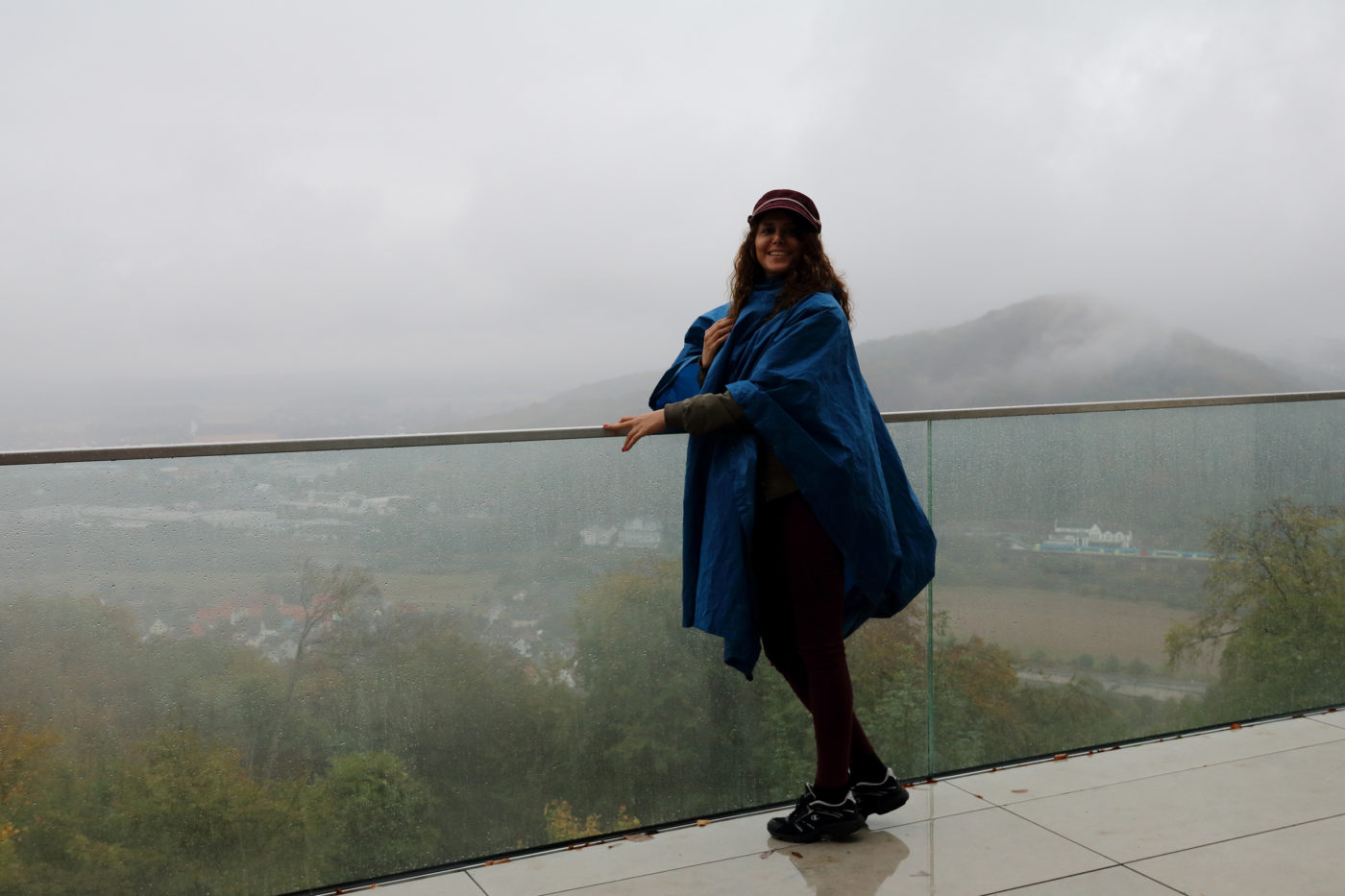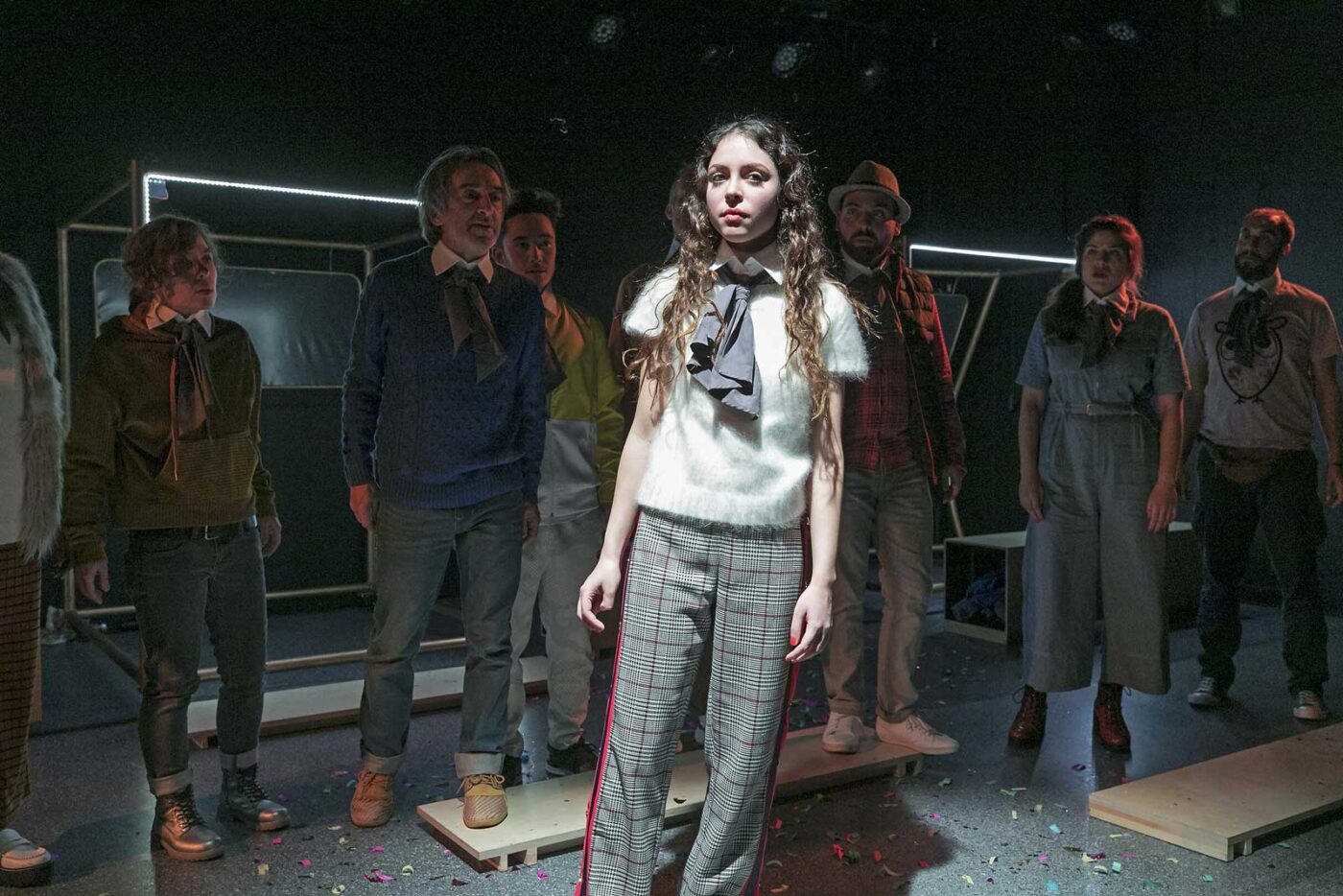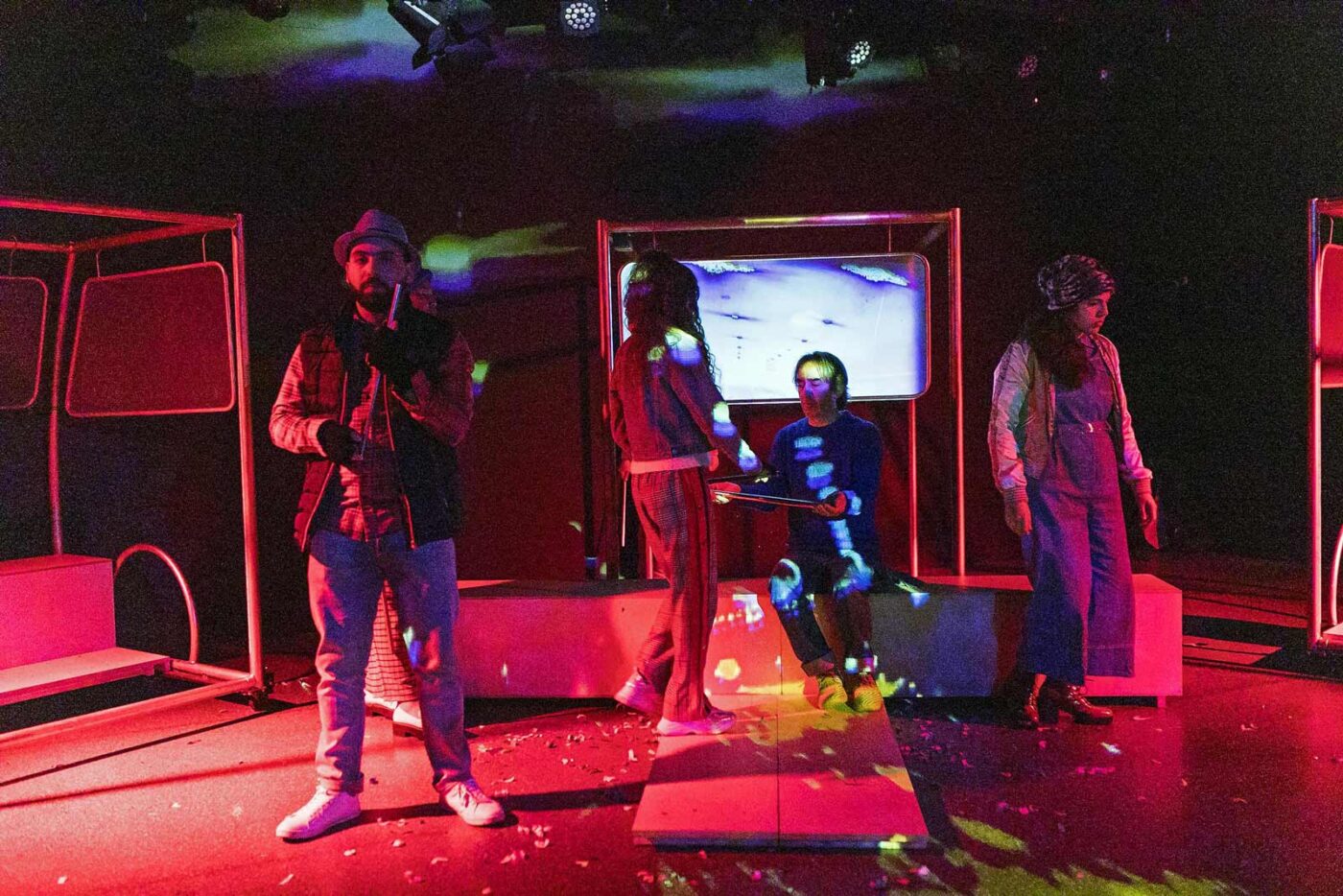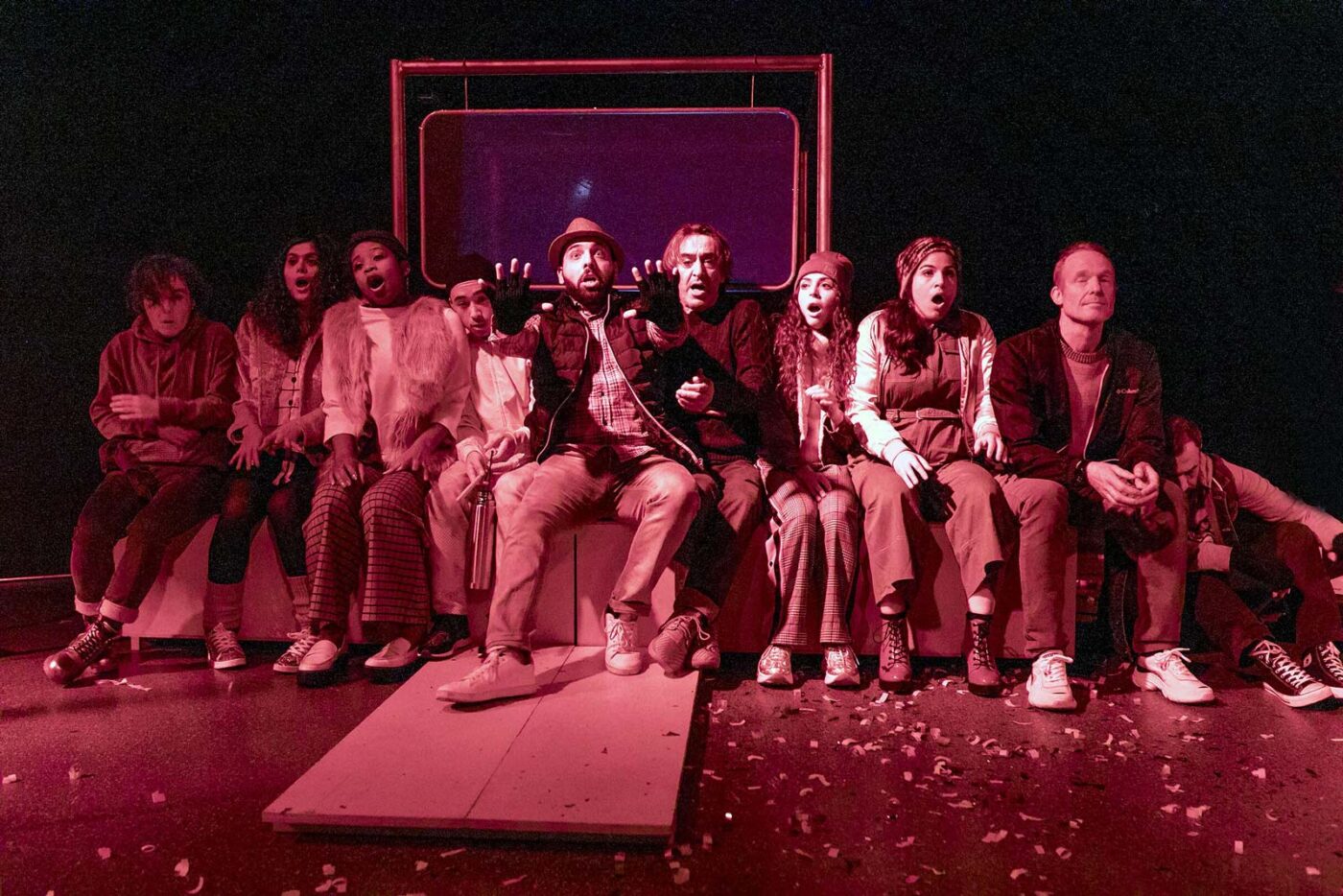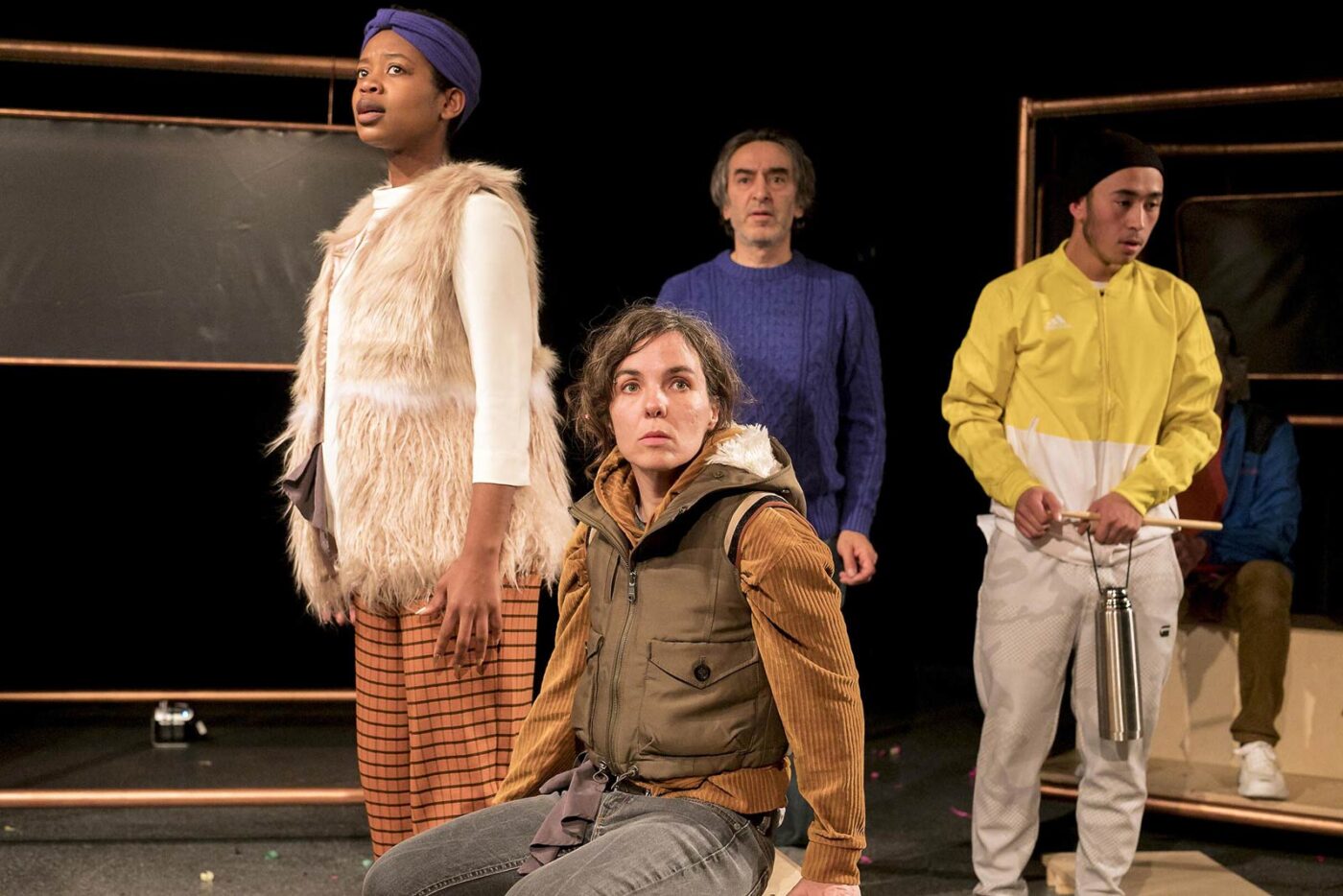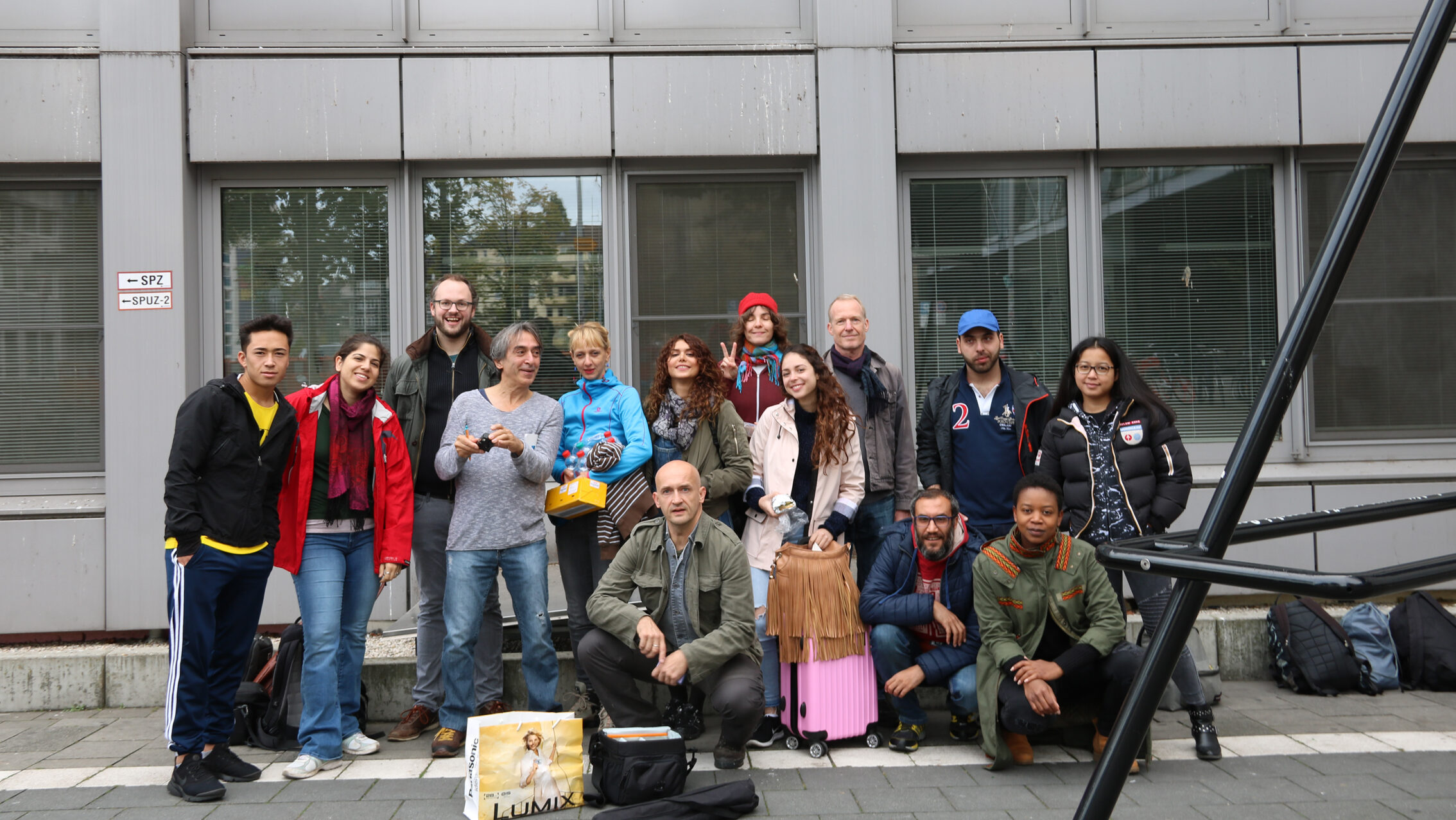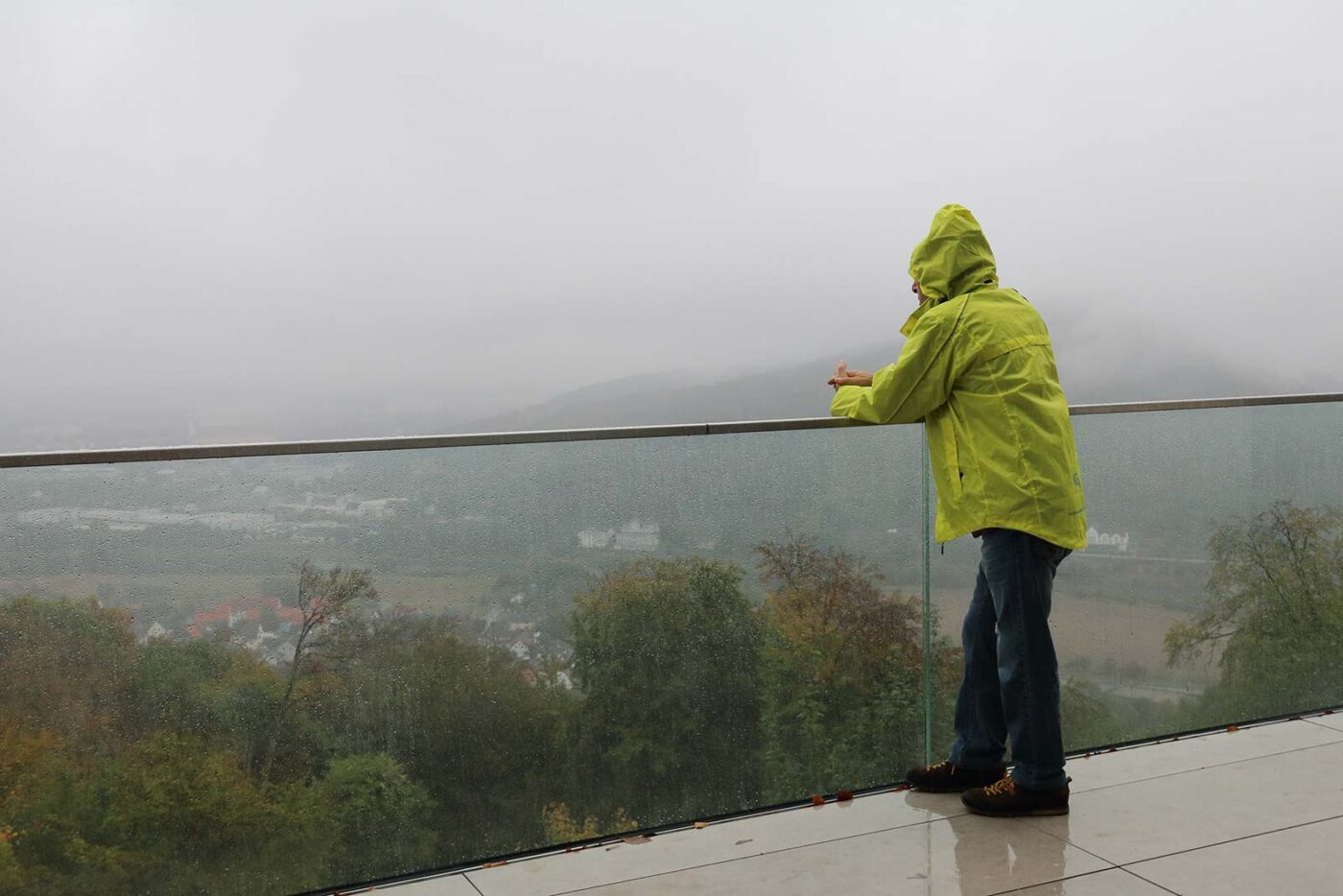
Germany.
A Winter’s Tale.
– after Heinrich Heine –
A transcultural road trip through the new homeland
With
Ava Azadeh
Atena Bijad
Amy Tawfik Frega
Mortaza Husseini
Nawar Khadra
Rami Lazkani
Ulrich Linberg
Višnja Malešić
Prudence Mvemba Tsomo
Altan Ali Yilmaz
– – –
Concept and Direction
projekt-il
(Bianca Künzel, Alexander Steindorf)
Set Design and Costume
Ria Papadopoulou
Music
Matts Johan Leenders
Concept and Dramaturgy
Dorle Trachternach
Video
Joris Schwarz
Light
Michael Röther,
Thomas Wildhagen
Heinrich Heine is considered one of Germany’s most famous migrants. Driven away by censorship and hostility from his contemporaries, he lives in Paris for 13 years before his longing for the Fatherland drives him back across the border. In the winter of 1844, he travels through his old homeland with mixed feelings. In Cologne he has a dialogue with the Rhine, in the Teutoburg Forest he howls with the wolves, in Hamburg he eats a goose with his mother, who constantly asks him the wrong questions while he eats.
… The German soul only has a room with eleven square metres at the beginning, but she is sure she is in the right place. …
More than 150 years later, today’s experts on homelessness, exiles and migrants from eight different countries of origin, embark on a journey through Heine’s thought spaces. They discover unexpected perspectives on Germany and Heine’s vision of a Europe that seeks to overcome nationalism and narrow-mindedness. They counter Heine’s biting irony with playful wit and gain new perspectives on the view of „home“. Deutschland. Ein Wintermärchen (Germany. A Winter’s Tale) is an evening about the place of longing „Fatherland“, grilled sausages and arriving in Germany in a time long past when Germans stood with flowers at their borders.
– – –
Press
Rheinische Post, 7.11.2018
„Deutschland. Ein Wintermärchen“ is an impressive, moving evening – and a new highlight of the Bürgerbühne. Ten mostly young people from eight different countries of origin have come together for it: Refugees, exiles, children of migrants. Some were born here, others have only been in the country for a few years. Heine, Düsseldorf’s most famous migrant, is their ally and companion in this play conceived and directed by Bianca Künzel and Alexander Steindorf. […] Watching the fresh, playful ensemble is a delight.
The world premiere of „Deutschland. Ein Wintermärchen“ premiered on 5 November 2018 at the Bürgerbühne of the Düsseldorf Schauspielhaus. Due to the Corona pandemic, all further performances were suspended from March 2020.
A project of the Bürgerbühne at the Düsseldorf Schauspielhaus in cooperation with the Hedwig and Robert Samuel Foundation and the zakk – Centre for Action and Communication. Supported by the Ministry of Culture and Science of the State of North Rhine-Westphalia and the LAG Soziokultur.



It was in the sad month of November,
the days grew duller,
the wind tore the leaves from the trees,
I travelled to Germany.
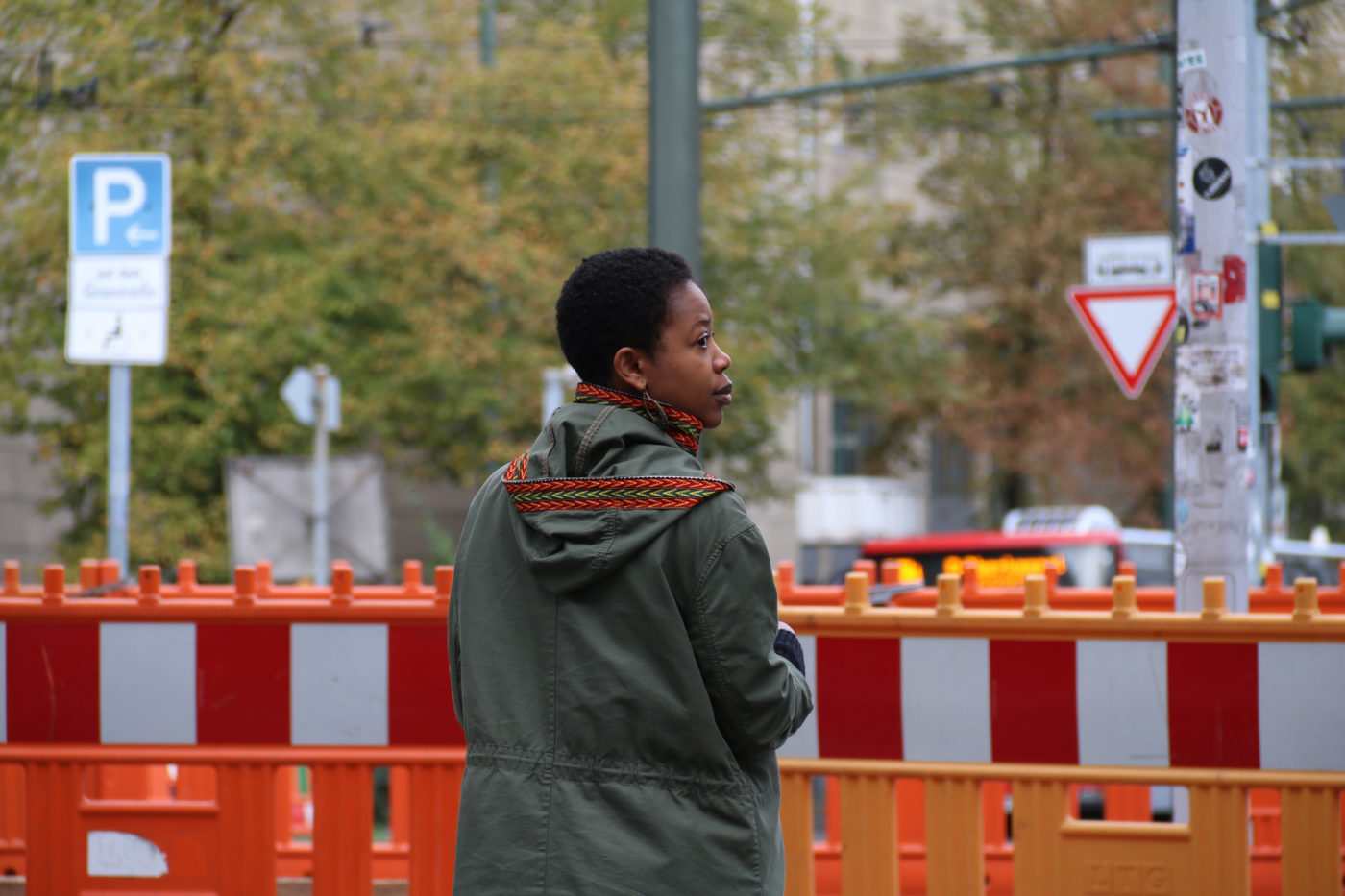
And when I came to the border,
I feel a stronger throbbing
In my chest, I even think
The eyes began to drip.
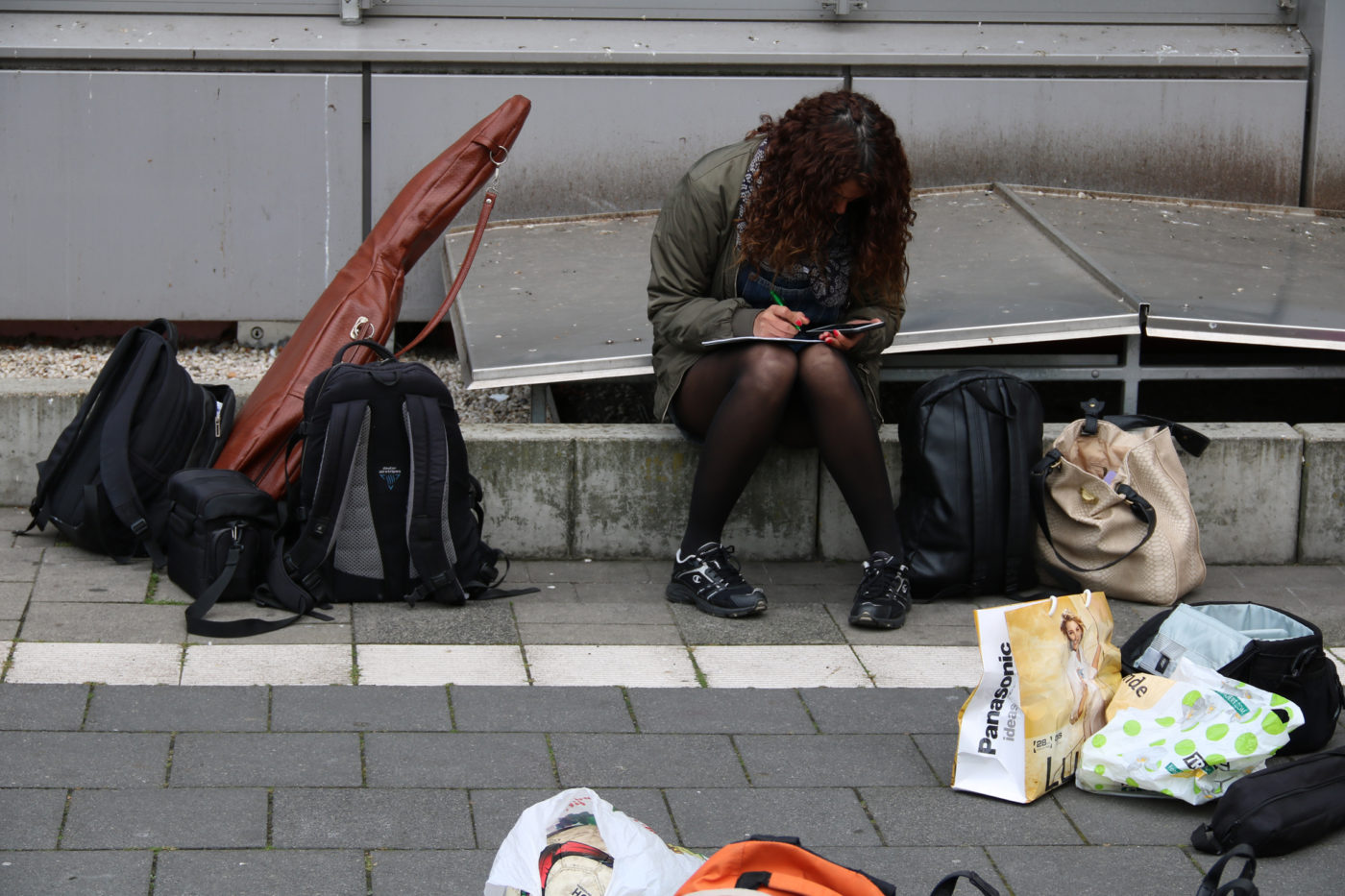
دم مرز، تپش هولناک قلب در سینه من و چشمان خیسم
وَعِنْدَمَا وَصَلْتُ إِلَى الحُدُودِ
شَعَرَتْ هُنَاكَ بِضَرْبَةٍ قَوِيَّةٍ فِي صَدْرِي.
أَعْتَقِدُ أَنَّ العُيُونَ أَيْضًا بَدَأْتْ تَذْرِفُ الدُّمُوعَ.
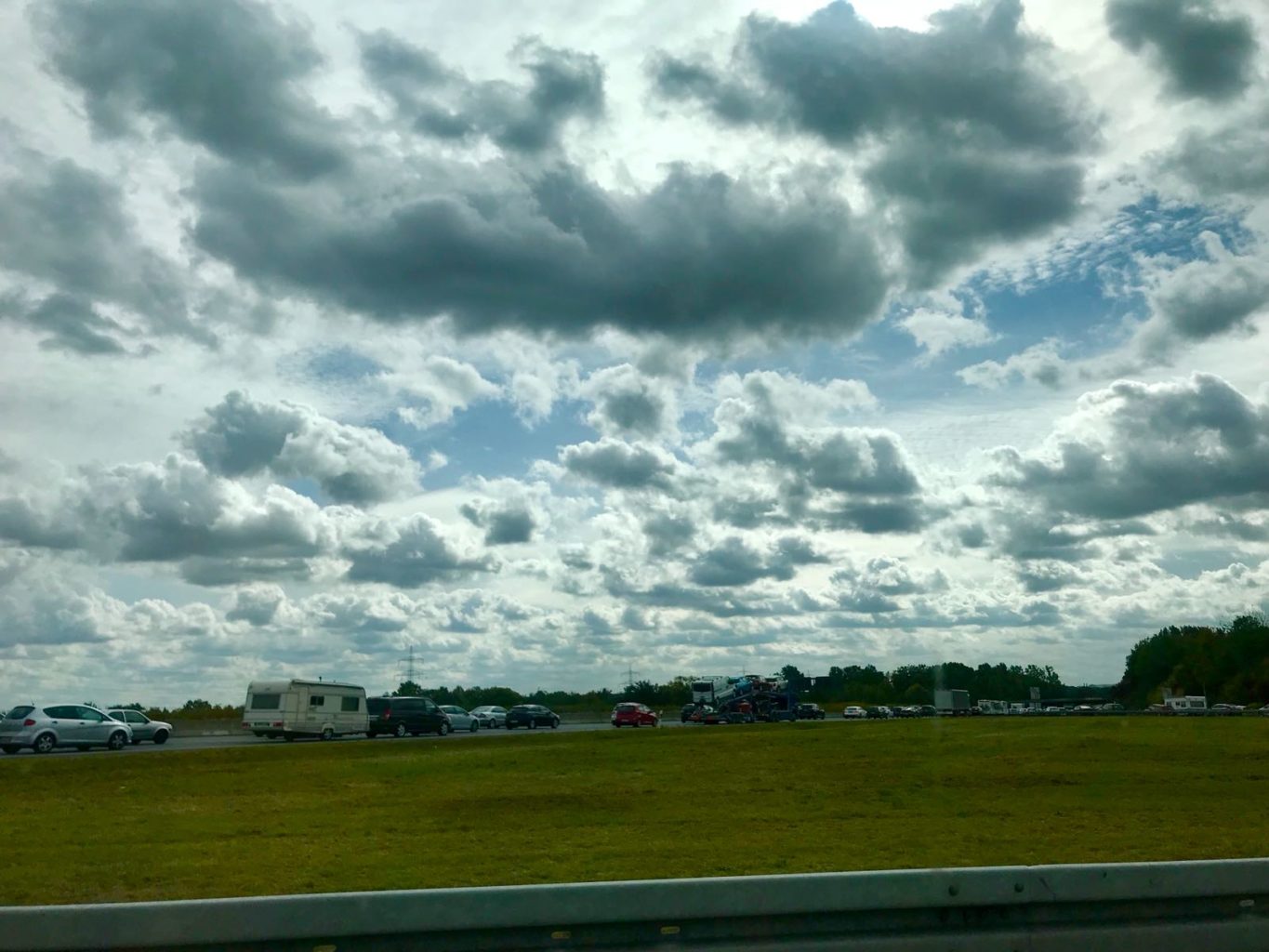
The German soul only has a room with eleven square metres at the beginning, but it is sure that it is in the right place. The German soul has no one and nothing. No father and no mother and no brother and no sister and no friend and no wife. The German soul is free. It misses nothing and no one. But it can no longer find its way.
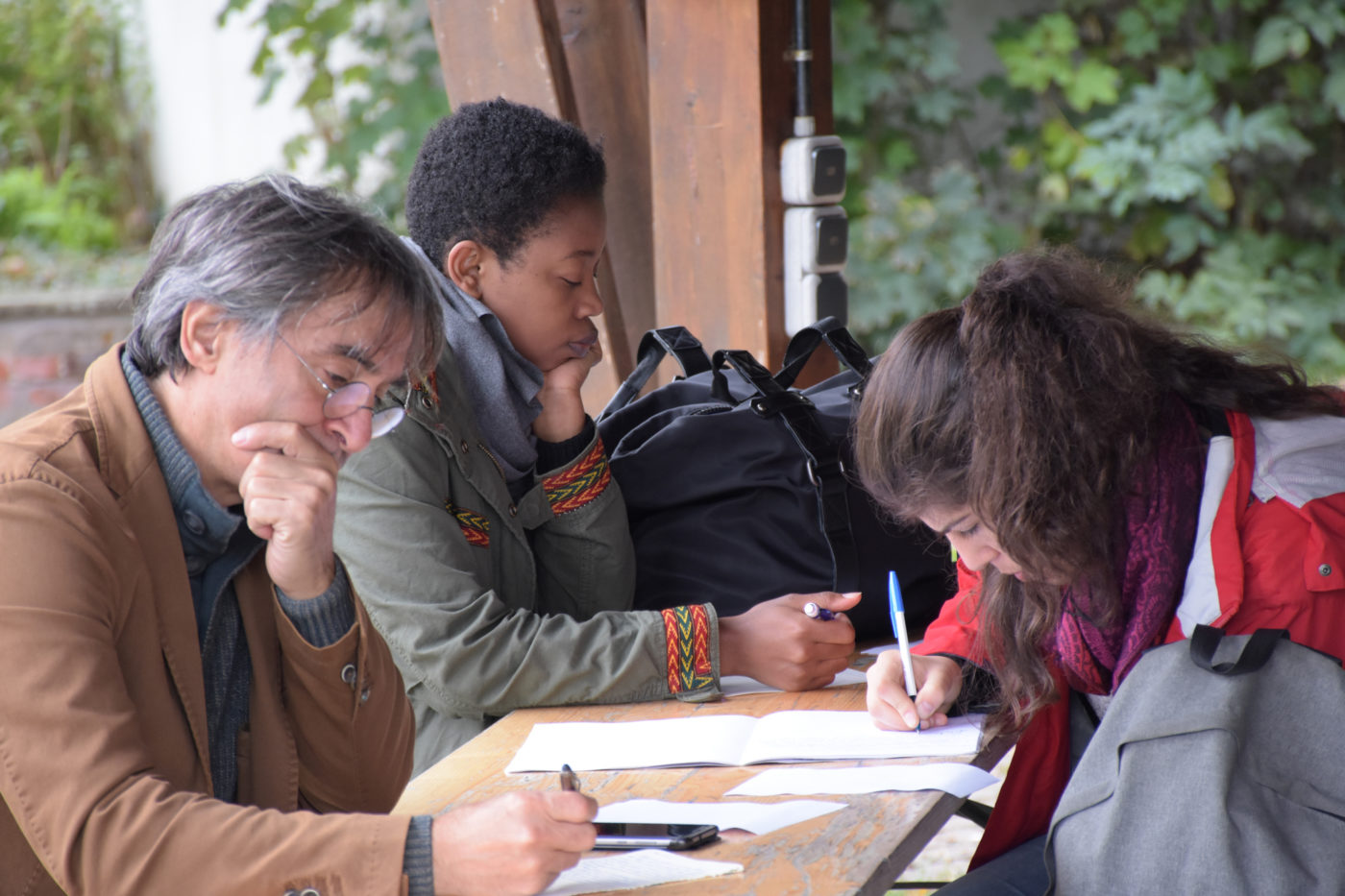
The German soul woke up early this morning. It rejoiced at the singing of the birds. And the singing of the birds is good for it. The German soul is a mother. She is raising two sons alone. She wonders how she is going to make it through the world, alone. As a woman. She is still me, the German soul, a mother, but also a woman.
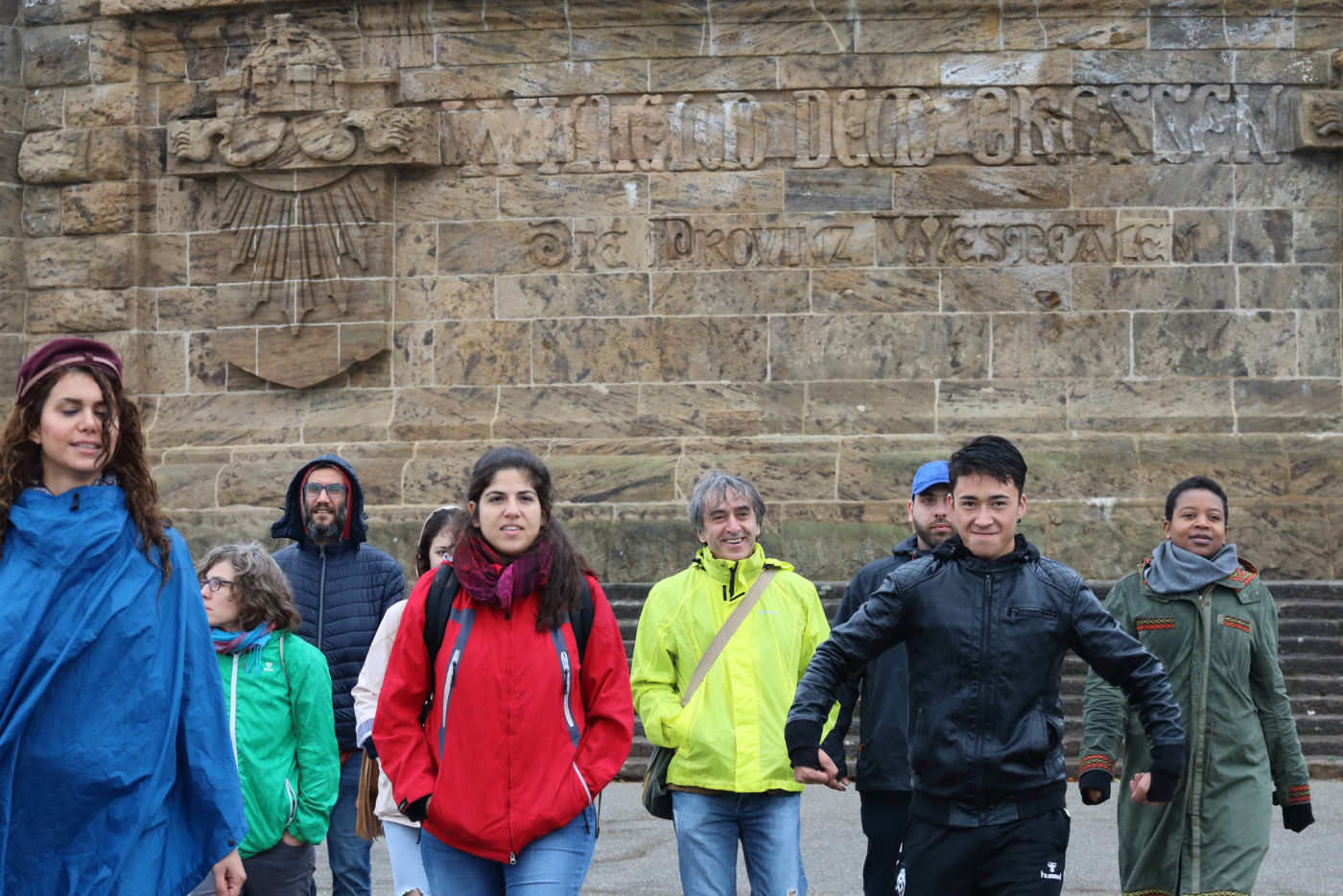
When something happens out in the world, the German soul stops thinking about itself. When nothing is happening in the world, it ruminates about itself. Worlds collide inside her. Sometimes she feels poor, other days rich. Is there enough for everyone? How much is „enough for everyone“? The German soul doubts. She can’t manage to be there for everyone. It does not love chaos. It longs for physical contact. It is not perfect. But she tries. Then something happens out in the world. And she stops being herself.
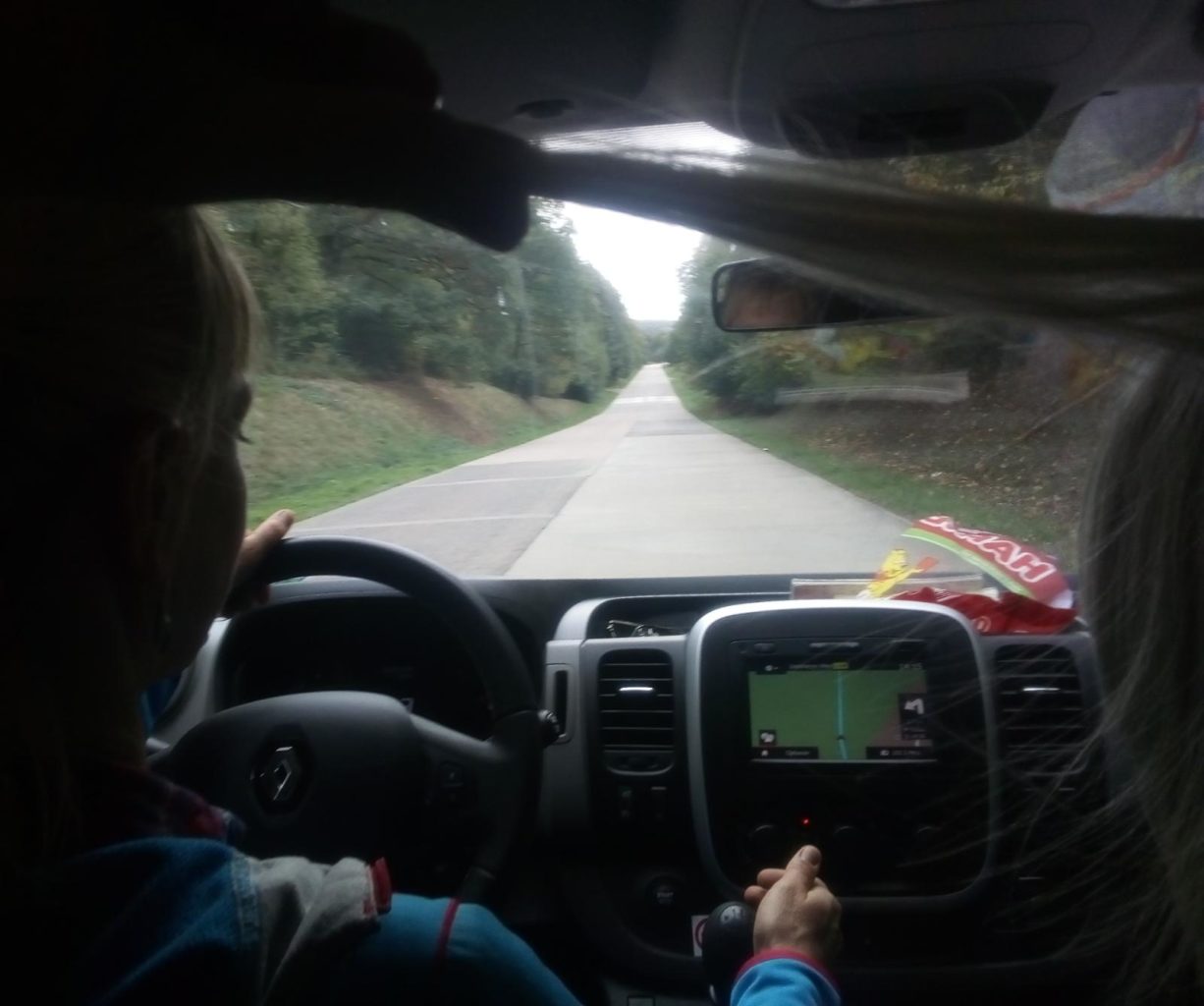
It was dark blue. Outside the sky was dark blue, with a few clouds in it. Like when it’s night, but not quite dark yet. And when I crossed the border, I felt for the first time that people who speak a different language, have a different culture, have a different identity, care about me. I put on a jacket. I wore a jacket when I crossed the German border. A green jacket with Adidas stripes. When I got to the border, there were people standing there at the station, lots of people. Women, children, men, they had flowers in their hands and candles, and they applauded. Me, us. The whole group that arrived. And when I heard the German language, I felt strange. It was as if my heart was bleeding quite pleasantly. I thought nothing, only felt. My big brother said, put on a jacket when you come to Germany. It was dark blue and it was cold. I felt a thumping in my chest. These people were clapping and saying, „We are very happy that you didn’t die at sea.“ So I travelled over to Germany. The blue sky and the darkness and the rain. That’s all I remember. It was 5 November 2015.
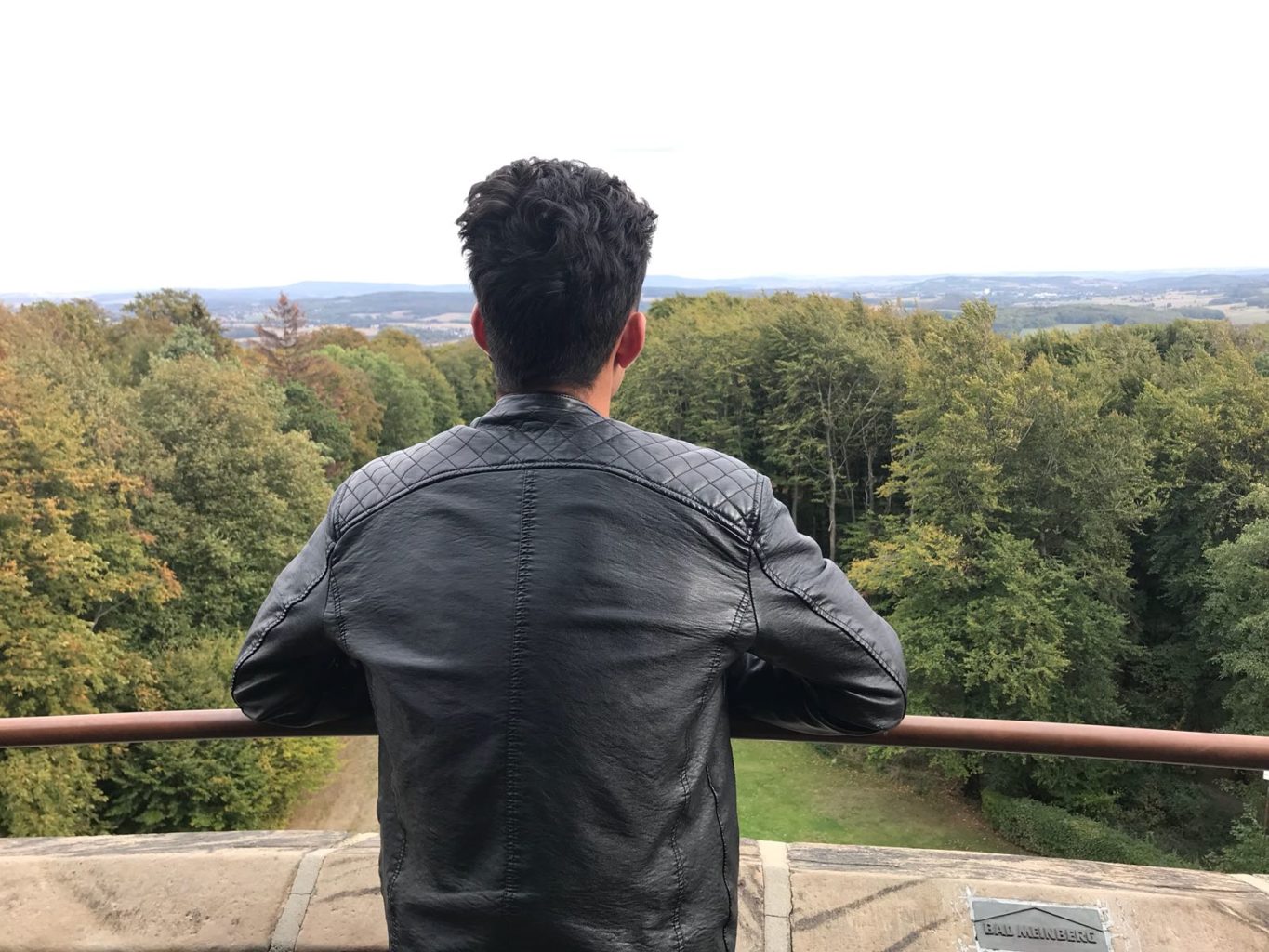
I once met a woman who had no choice. It was my second year in Germany. I was taking the train to Hamburg. A woman asked me if the seat next to me was still free. She was very old and talked a lot. When we left the station in Hanover, she told me how she had travelled from Dresden to Hamburg before. With her baby, which was just a few days old. The old woman told me that the whole station in Dresden was full of people who wanted to flee. She sat in the station in Dresden and gave her baby her breast. It was cold. Another woman without a cap and scarf asked if she would also give her baby the breast. It had not eaten for two days. The woman thought about it. A thought, another thought, another thought, thoughts, thoughts, thoughts. And then she said, „No. I can’t! I’m sorry, but I only have enough milk for my child.“ When she arrived in Hamburg later, she saw the woman without her cap and scarf with her dead child in her arms.
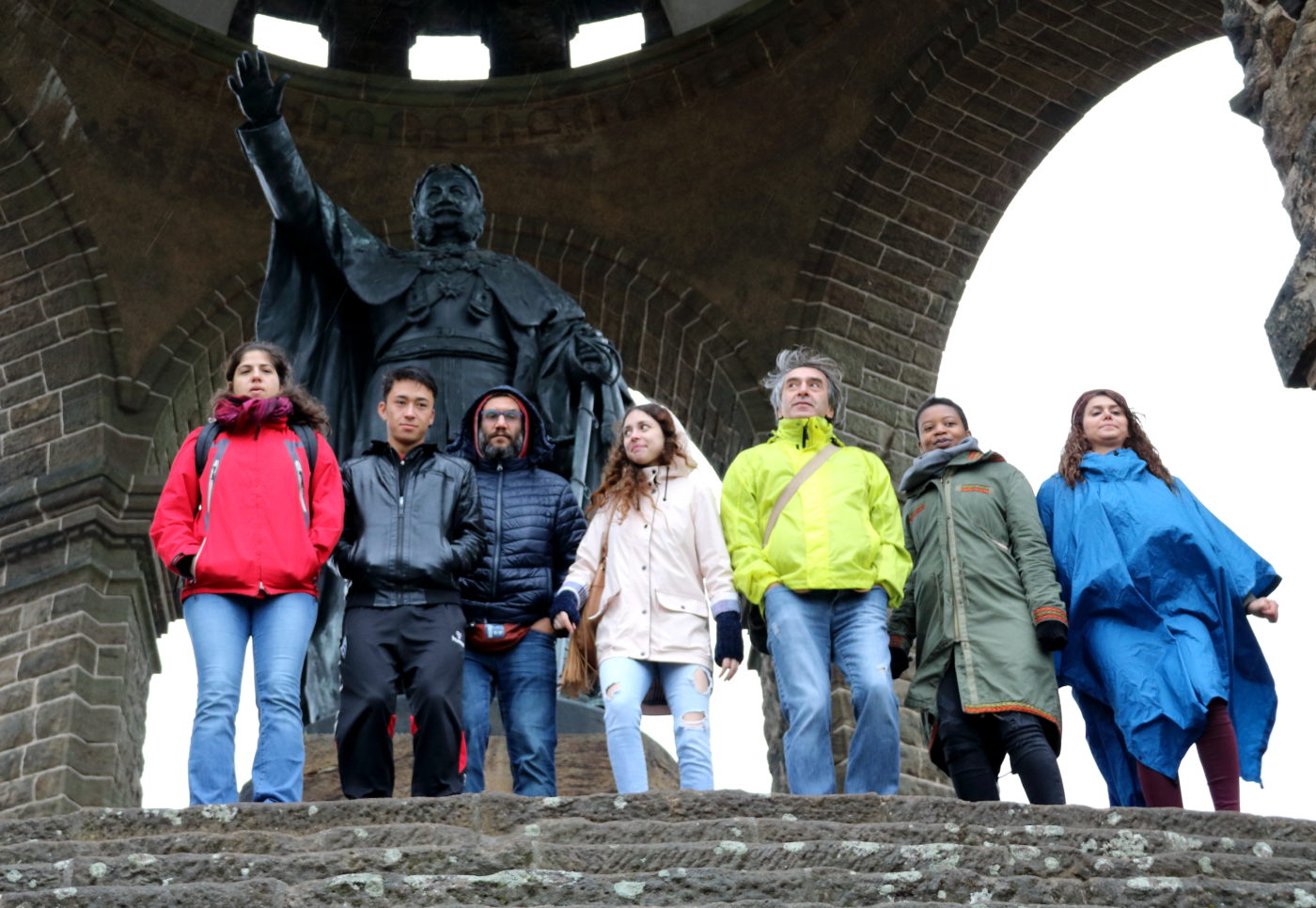
I was 35 years old. I thought Syria would stay the way it is. At that time, I thought a lot about courage. And then I came to Germany. That changed my thinking forever. I used to think that the world had a truth. But here I realised it all depends on your point of view. I thought there was only black and white. And now suddenly there is a grey. For me, it’s another part of this other truth that I still don’t understand. From my point of view, people think for the family, for small groups. So Germany is for the Germans and France is for the French. That’s how people think. That is normal. I understand that. And, when I crossed the border, suddenly there were the others who said, we can all live together. You can have a nice life here too. For me, that’s strange. What the people there in Chemnitz supposedly think is normal for me. Why should someone like me, who comes from another country, be at home there in the same way? But there are people who think exactly that. That the world is for everyone. It’s not normal to think that. And if someone thinks that, then they are special.
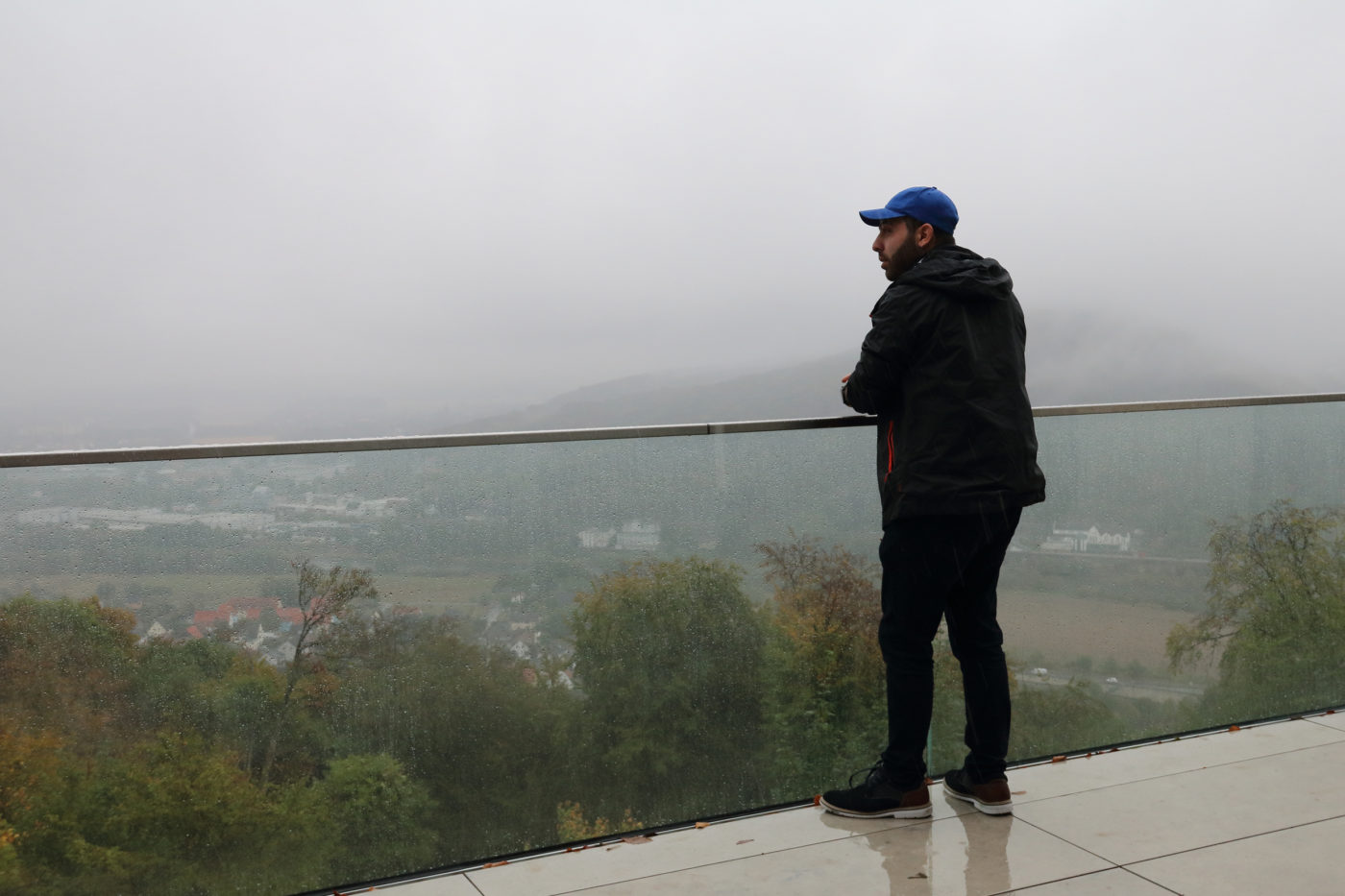
„Mmmhhh, one can argue about that. So about Heine. Good, but not easy. Even the Germans can’t see through that.“
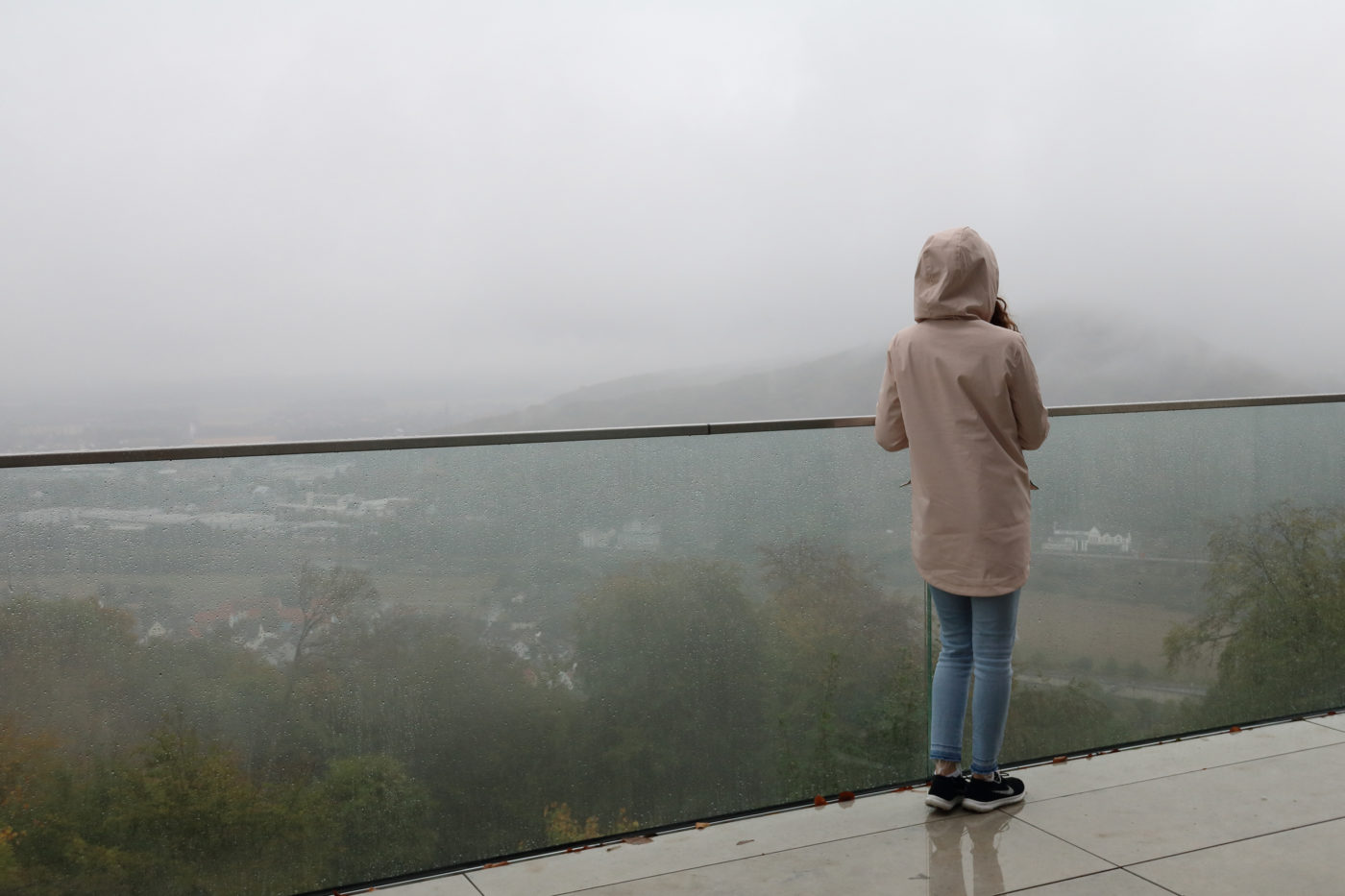
„When you say: „Germany. A Winter’s Tale“ – Yes, I know: „When I think of Germany at night … No, you don’t know it. I wonder who needs it more!“
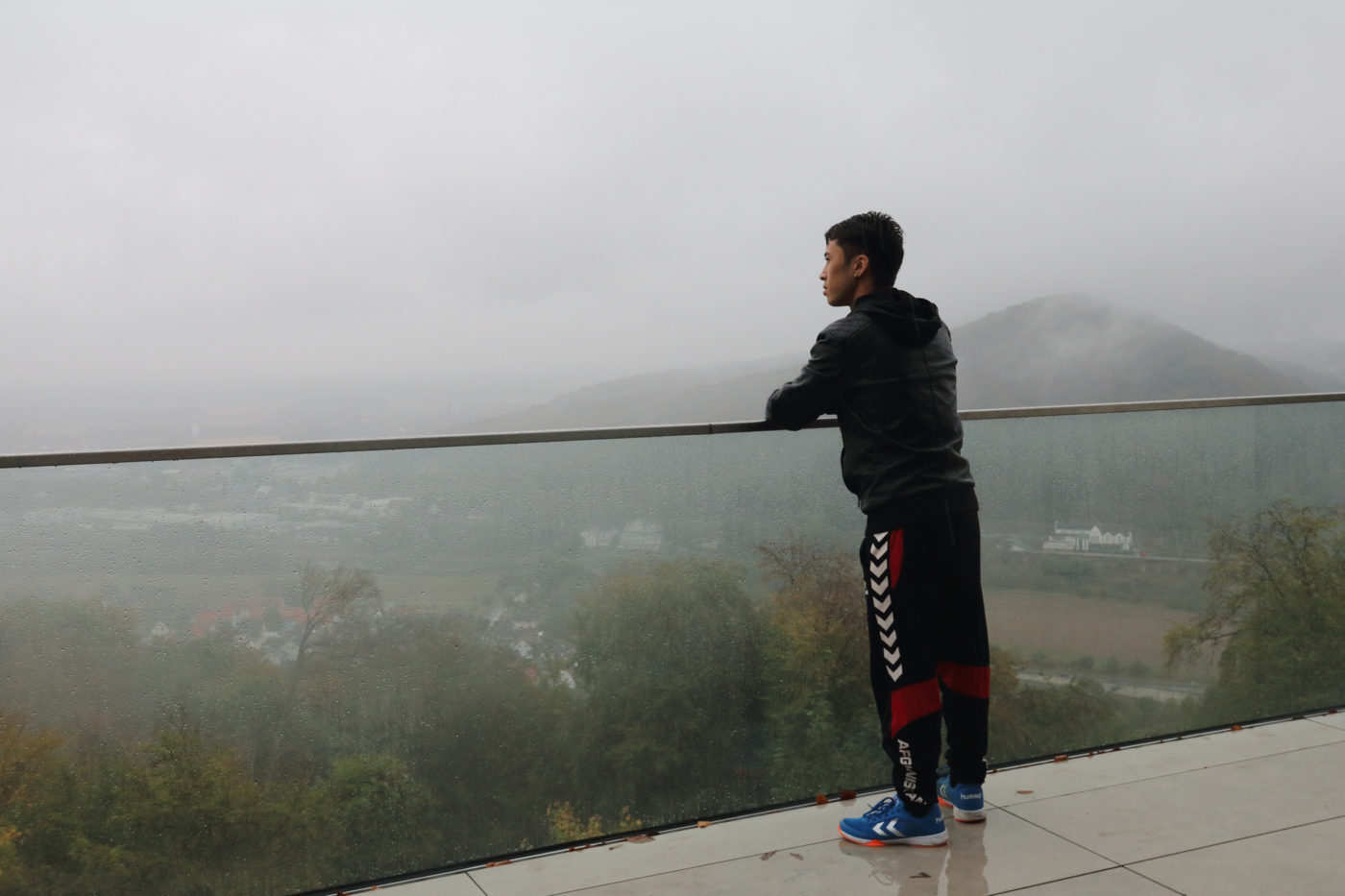
„… I’m just always bumbling around: first refugees – now escapees, people with refugee experience, migrants – sounds pejorative – first multi-, then inter-, now transcultural …. Yes, yes, the dear Germans – but most of them make an effort.“
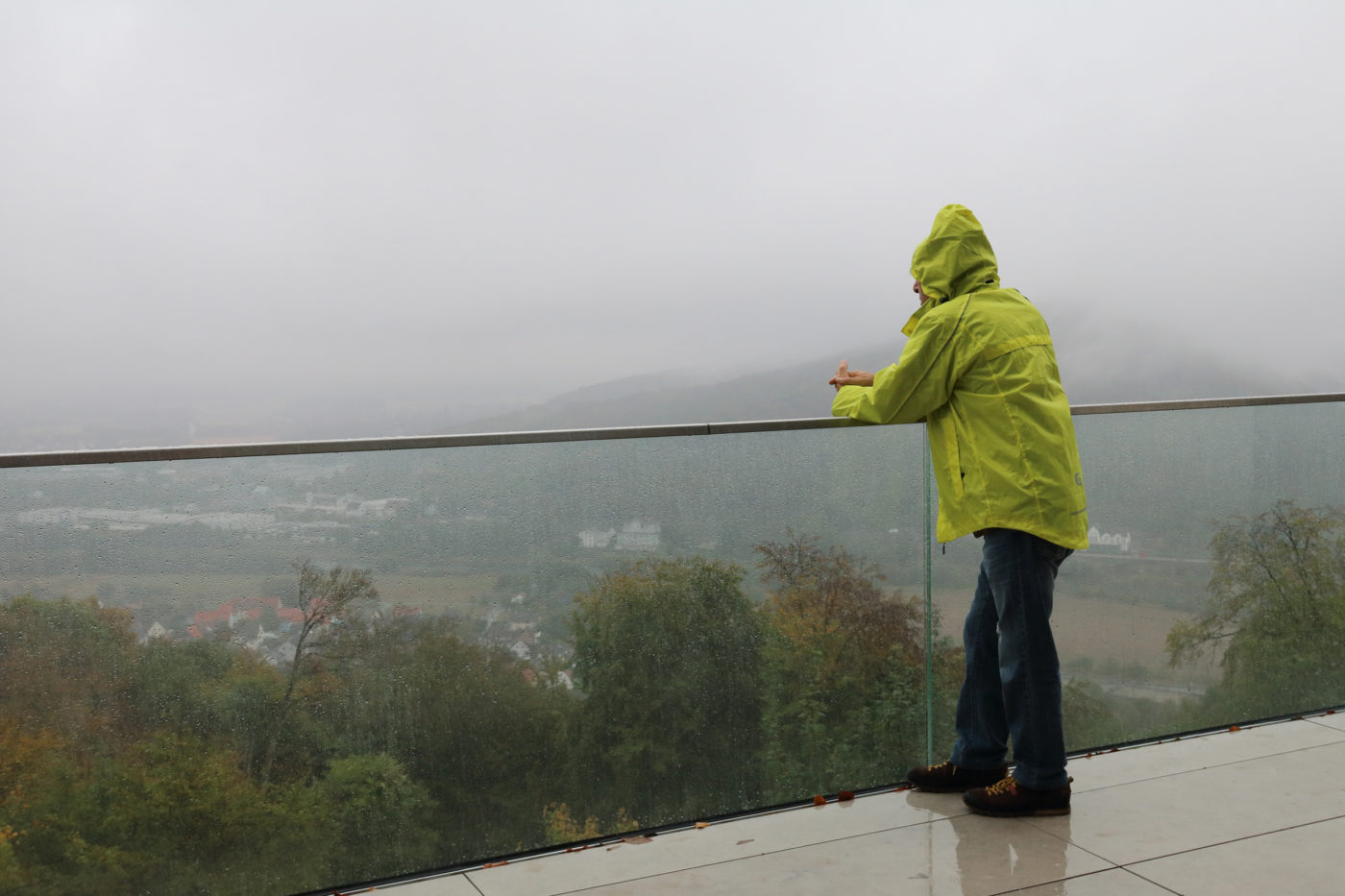
„Mum, hello. How are you? I had an appointment at the office. I can send you a visa for a fortnight. With it, you can finally visit me. Mum, I’m happy. Unfortunately, I only got a visa for you. My brother can’t come with you, but he can stay with Dad.“
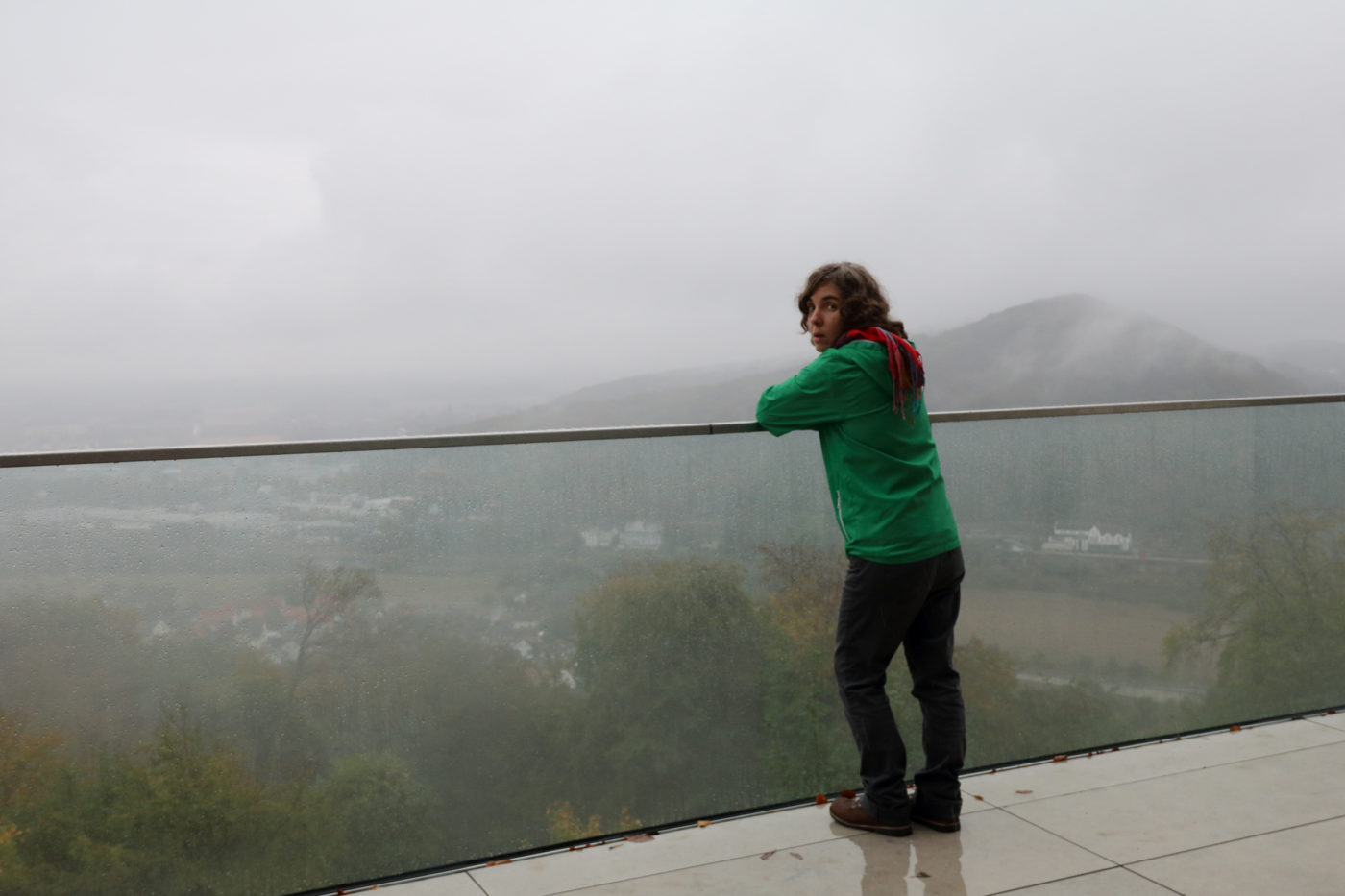
„I think there are already good folk songs. Old German songs, that is. I mean more this constructed blond German soul, in its ideal world – always wearing clean knickers. And if someone makes a mess, the place burns.“
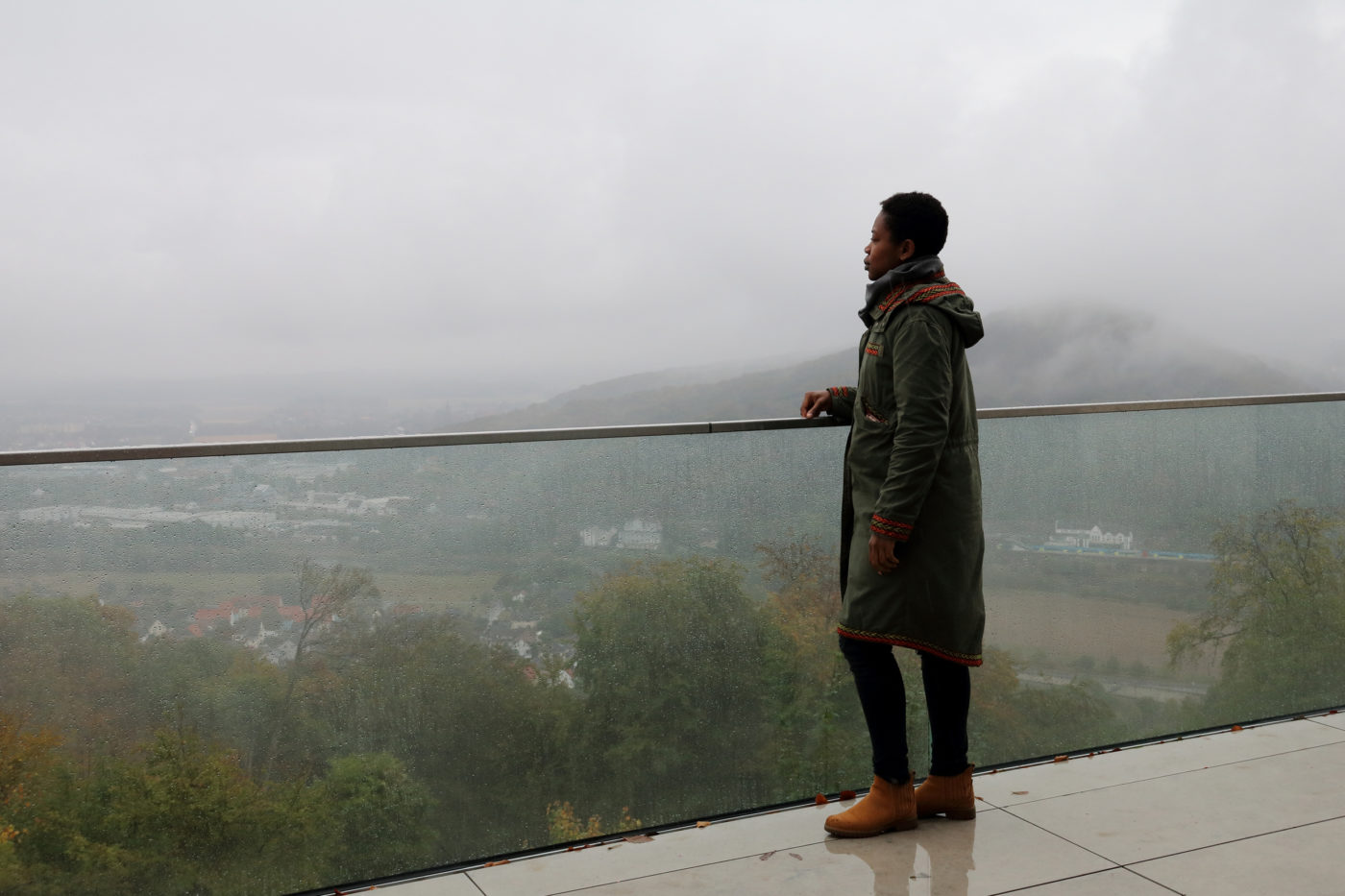
„True. Now that you mention it. It was the ABSOLUTE now-I’m-home feeling. The home of my childhood. I asked myself: what does this flag actually feel like? And when I got to the border, it seemed bigger and wider than any flag I’ve ever seen on any other border.“
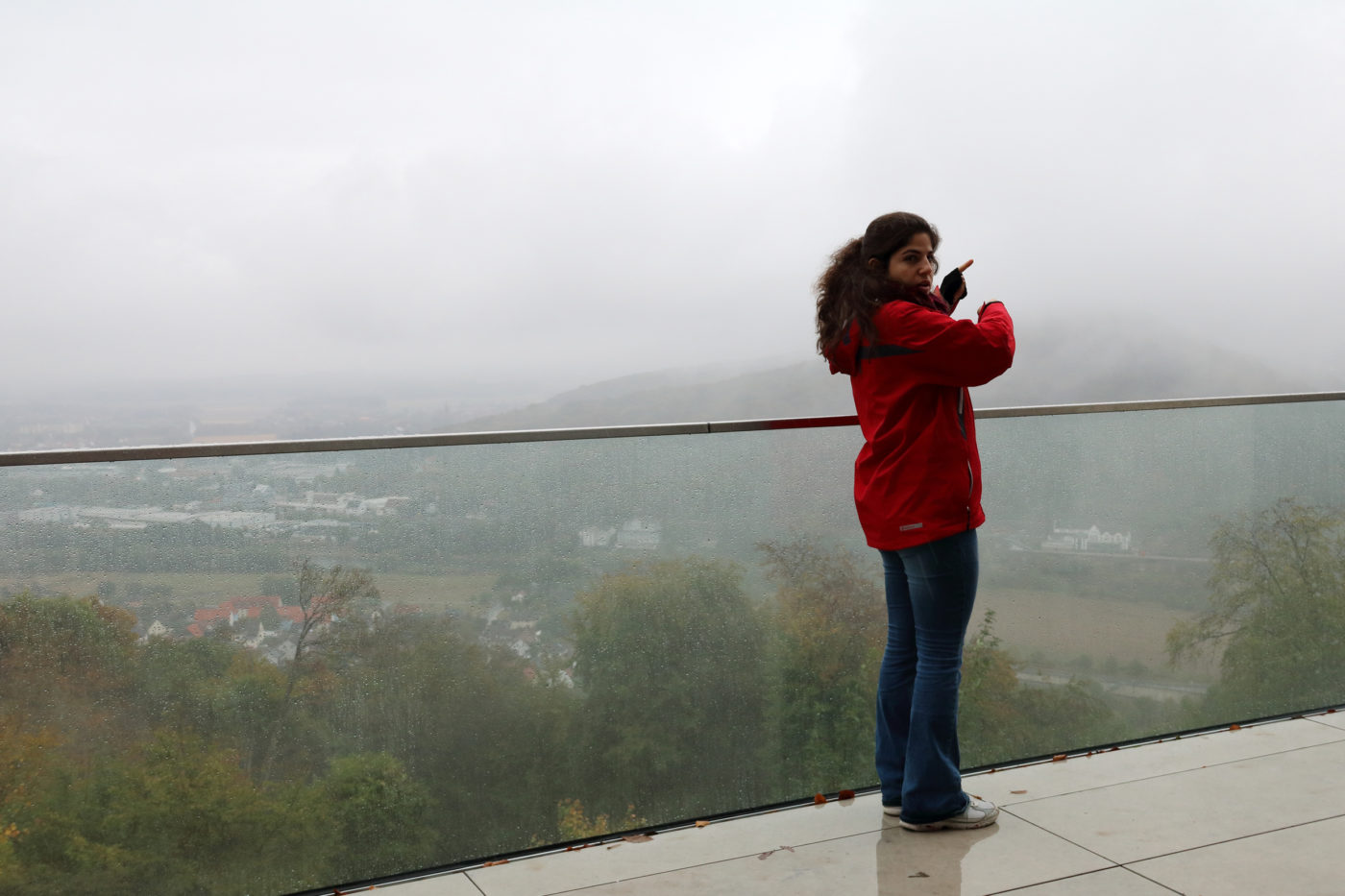
„When I go back tomorrow, I’ll go to the desert. Because there I am simply free. It’s just there, the freedom. Quiet and calm. There is nothing. There I am clear, like white paper, very clear.“
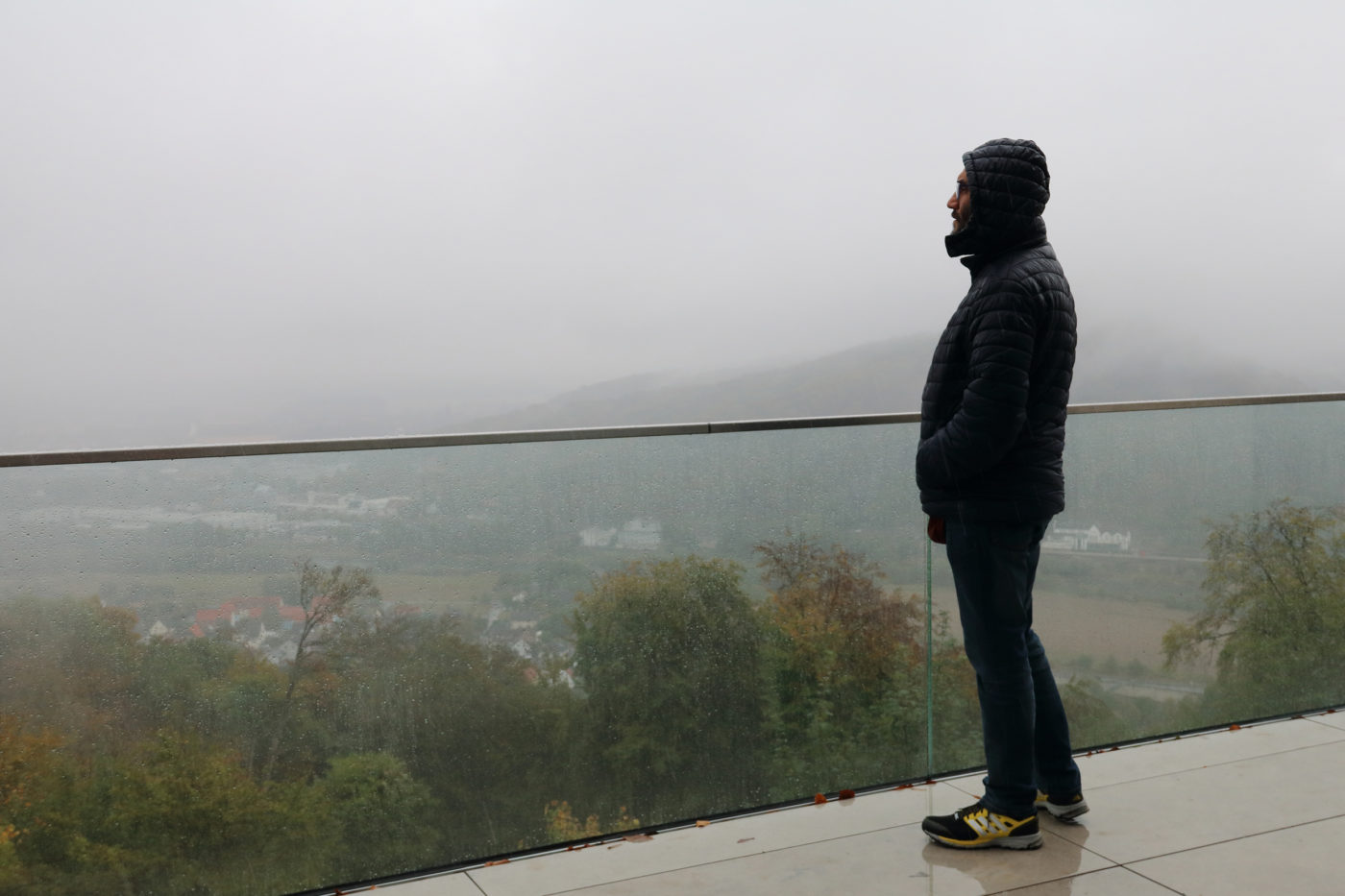
„If I went back tomorrow, I would always long for Germany.“
